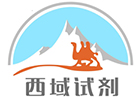硫化钴(II), 99.5% trace metals basis,Cobalt(II) sulfide
产品编号:西域试剂-WR363254| CAS NO:1317-42-6| MDL NO:MFCD00016032| 分子式:CoS (generally Co6S5 and/or Co4S3)| 分子量:91.00
本网站销售的所有产品仅用于工业应用或者科学研究等非医疗目的,不可用于人类或动物的临床诊断或者治疗,非药用,非食用,
| 英文名称 | Cobalt(II) sulfide |
|---|---|
| CAS编号 | 1317-42-6 |
| 产品熔点 | >1116ºC |
| 产品密度 | 5,45 g/cm3 |
| 精确质量 | 90.90530 |
| PSA | 32.09000 |
| LogP | 0.64820 |
| 蒸气压 | 12600mmHg at 25°C |
| 稳定性 | 如果遵照规格使用和储存则不会分解,未有已知危险反应,避免氧化物、酸 钴有两种形态,α-CoS为黑色无定形粉末,在空气中氧化变为Co(OH)S,β-CoS为灰色或带红的结晶,与NiAs晶型相同,难溶于水,可溶于酸 |
| 储存条件 | 保持贮藏器密封、储存在阴凉、干燥的地方,确保工作间有良好的通风或排气装置 |
相关文档
化学品安全说明书(MSDS)
下载MSDS质检证书(COA)
相关产品
| 危害码 (欧洲) | Xi: Irritant;N: Dangerous for the environment; |
|---|---|
| 风险声明 (欧洲) | R43 |
| 安全声明 (欧洲) | S23;S37;S60;S61 |
| 危险品运输编码 | UN 3077 |
| 海关编码 | 2830903000 |
|
Section 1: Product Identification Chemical Name:Cobalt (II) sulfide (99.5%-Co) CAS Registry Number:1317-42-6 Formula:CoS EINECS Number:215-273-3 Chemical Family:metal chalcogenides Synonym:Cobalt monosulfide, Cobaltous sulfide
Section 2: Composition and Information on Ingredients IngredientCAS NumberPercentACGIH (TWA)OSHA (PEL) Title Compound1317-42-6100%0.02mg/m3 (as Co)no data Section 3: Hazards Identification Irritating to eyes, skin and respiratory tract. May cause sensitization by skin contact. Limited evidence of a Emergency Overview: carcinogenic effect. Possible risk of irreversible effects. Primary Routes of Exposure:Ingestion, inhalation, skin and eyes Eye Contact:Causes mild to moderate irritation of the eyes. Skin Contact:Causes slight irritation of the skin. may cause sensitization by skin contact. Inhalation:Irritating to the nose, mucous membranes and respiratory tract.Hydrogen sulfide gas, if formed, is poisonous. May cause abdominal pain, nausea, vomiting, flushing of the face and ears, mild hypotension, rash and Ingestion: ringing in the ears. Irritating to eyes, skin and respiratory tract. Hydrogen sulfide gas may cause painful conjunctivitis, headache, Acute Health Affects: nausea, dizziness, pulmonary edema and possible death. Repeated oral administration may produce goiter and reduced thyroid activity. Prolonged or repeated skin Chronic Health Affects:exposure may cause dermatitis. Chronic exposure associated with kidney, heart and lung damage. Limited evidence of a carcinogenic effect. Possible risk of irreversible effects. NTP:No IARC:Yes OSHA:No SECTION 4: First Aid Measures Immediately flush the eyes with copious amounts of water for at least 10-15 minutes. A victim may need Eye Exposure: assistance in keeping their eye lids open. Get immediate medical attention. Wash the affected area with water. Remove contaminated clothes if necessary. Seek medical assistance if Skin Exposure: irritation persists. Remove the victim to fresh air. Closely monitor the victim for signs of respiratory problems, such as difficulty Inhalation: in breathing, coughing, wheezing, or pain. In such cases seek immediate medical assistance. Seek medical attention immediately. Keep the victim calm. Give the victim water (only if conscious). Induce Ingestion: vomiting only if directed by medical personnel. SECTION 5: Fire Fighting Measures Flash Point:not applicable Autoignition Temperature:no data Explosion Limits:no data Extinguishing Medium:carbon dioxide or dry powder If this product is involved in a fire, fire fighters should be equipped with a NIOSH approved positive pressure Special Fire Fighting Procedures: self- contained breathing apparatus and full protective clothing. Hazardous Combustion andIf involved in a fire this material may emit irritating fumes of hydrogen sulfide and sulfur dioxide. Decomposion Products: Unusual Fire or Explosion Hazards: No unusual fire or explosion hazards. SECTION 6: Accidental Release Measures Spill and Leak Procedures:Small spills can be mixed with vermiculite or sodium carbonate and swept up. SECTION 7: Handling and Storage Store in a tightly sealed container. Exposure to the atmosphere may lead to release of toxic hydrogen sulfide Handling and Storage: gas. Empty containers may retain product residues that evolve toxic gases. SECTION 8: Exposure Controls and Personal Protection Eye Protection:Always wear approved safety glasses when handling a chemical substance in the laboratory. Skin Protection:Wear appropriate chemical resistant gloves and protective clothing. Ventilation:If possible, handle the material in an efficient fume hood. If ventilation is not available a respirator should be worn. The use of a respirators requires a Respirator Respirator: Protection Program to be in compliance with 29 CFR 1910.134. Ventilation:If possible, handle the material in an efficient fume hood. Additional Protection:No additional protection required. SECTION 9: Physical and Chemical Properties Color and Form:-200 mesh black pwdr. Molecular Weight:91 Melting Point:no data Boiling Point:no data Vapor Pressure:no data Specific Gravity:5.45 Odor:none Solubility in Water:Insoluble SECTION 10: Stability and Reactivity Stability:moisture sensitive Hazardous Polymerization:no hazardous polymerization Conditions to Avoid:Reaction with mineral acids can lead to formation of toxic fumes of hydrogen sulfide. Incompatibility:Mineral acids, active metals and oxidizing agents Decomposition Products:hydrogen sulfide, sulfur dioxide, and metal oxides. SECTION 11: Toxicological Information Oral (rat); LD50: >5 gm/kg. Intramuscular (rat); TDLo: 180 mg/kg. Hamster embryo; Morphological RTECS Data:transfusion: 1 mg/L. Hamster ovary; DNA damage: 10 mg/L. Hamster lung; Mutation in mammalian somatic cells: 25 mg/m3. Carcinogenic Effects:Possible carcinogen (as Co) Mutagenic Effects:Possible mutagen Tetratogenic Effects:no data SECTION 12: Ecological Information Ecological Information:Harmful to aquatic organisms. May cause long-term adverse effects in the aquatic environment. SECTION 13: Disposal Considerations This material and its container must be disposed of as hazardous waste according to local, state and federal Disposal: regulations. SECTION 14: Transportation Shipping Name (CFR):Non-hazardous Hazard Class (CFR):NA Additional Hazard Class (CFR):NA Packaging Group (CFR):NA UN ID Number (CFR):NA Shipping Name (IATA):Non-hazardous Hazard Class (IATA):NA Additional Hazard Class (IATA):NA Packaging Group (IATA):NA UN ID Number (IATA):NA SECTION 15: Regulatory Information TSCA:Listed in the TSCA inventory. SARA (Title 313):Title compound: see category code N096 for reporting. Second Ingredient:none SECTION 16 - ADDITIONAL INFORMATION N/A |








 浙公网安备 33010802013016号
浙公网安备 33010802013016号